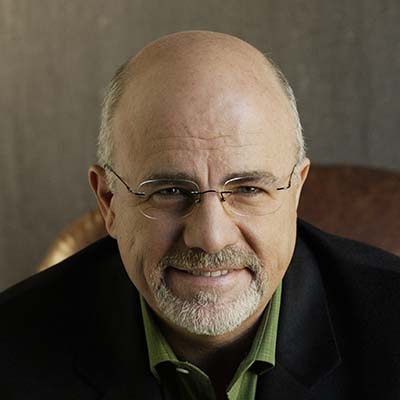Dave Says ...
April 16-22, 2018
By Dave Ramsey
daveramsey.com
Expenses, not income
Dear Dave,
I bring home $4,100 a month in military disability pay and Social Security combined. My wife brings home an additional $2,000 each month. Should we base our emergency fund level on her income only, since mine is guaranteed?
—Lewis
Dear Lewis,
Your emergency fund shouldn’t be based on income. I recommend folks have three to six months of household expenses set aside in an emergency fund. What would it take to operate your household for that length of time if one or both of your incomes disappeared?
I don’t anticipate your income stopping, Lewis. But income loss isn’t the only thing you’re guarding against with an emergency fund. You’re also guarding against things like an illness in the family, if the transmission in the car goes out, or your home’s heating and cooling unit needs to be replaced. There are many more crises that can come upon a family other than a loss of income.
I don’t mind if you two lean toward the three-month side of expenses, since your income is pretty stable. But always remember, an emergency fund should contain three to six months of expenses, not income.
Thank you for your service, sir.
—Dave
What happens to the debt?
Dear Dave,
I’ve started your personal finance course in high school, so I’m asking this for the entire class. What happens to your debt if you pass away with no relatives or heirs to take responsibility for what you owed?
Elizabeth
Dear Elizabeth,
In many cases it simply does not get paid. Relatives or heirs of the deceased are not responsible for a friend or family member’s debt, except in cases where they have been a co-signer on that debt.
Let’s say someone’s parents died, and at the time of their death they had $100,000 in debt in their names only. The only way that debt will be paid is if they owned enough stuff — if they had enough in the way of assets — to pay the debt. If they owned a $200,000 home, the house would have to be sold in order to pay the debts. Their estate would be the only thing standing good for the debt. If they owned nothing, and had no co-signers on any of the debt, the creditor would not get paid. The bank lost that money.
Elizabeth, I hope that helped. Please tell your teacher I said thank you for leading the class!
—Dave
* Dave Ramsey is CEO of Ramsey Solutions. He has authored seven best-selling books, including The Total Money Makeover. The Dave Ramsey Show is heard by more than 13 million listeners each week on 585 radio stations and multiple digital platforms. Follow Dave on the web at daveramsey.com and on Twitter at @DaveRamsey.



